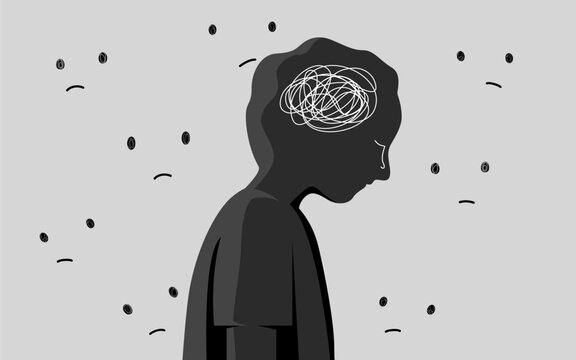The adverse consequences of Obsession with Oneself
Introduction:
An excessive preoccupation with oneself, where a person becomes unduly preoccupied with their own needs, desires, and appearance, is referred to as self-obsession. While having a healthy sense of self-assurance and self-awareness is important, becoming overly preoccupied with oneself can have a number of unfavourable effects. The negative implications of self-obsession on interpersonal relationships, individual development, mental health, perspective, and general wellbeing are examined in this article.
Strained Relationships:
Relationships suffer as a result of self-obsession, which is one of its main downsides. When people are overly self-centered, they frequently put their own needs and wants ahead of those of others. This egotism frequently results in a deficiency in empathy and an inability to comprehend or take into account the viewpoints and feelings of people around them. Due to the self-obsessed person's tendency to ignore or downplay the needs and emotions of their friends, family, or love partners, relationships may suffer as a result. This eventually can result in the deterioration of meaningful ties due to sentiments of abandonment and resentment.
Lack of Personal Growth:
Self-obsession might impede one's ability to develop personally. People who put too much emphasis on themselves may develop a resistance to criticism or constructive feedback. They could find it difficult to accept responsibility for their acts and admit their shortcomings. This absence of self-reflection and introspection can obstruct personal development, prevent people from growing from their mistakes, and keep them from learning new abilities. Personal and professional growth may stall if we are unwilling to recognise and address our areas of improvement.
Negative Impact on Mental Health:
The continual focus on oneself can have a seriously detrimental effect on one's mental health. People who are self-obsessed frequently have negative thought patterns and are self-critical all the time. In the end, this self-criticism can contribute to emotions of anxiety, melancholy, and even self-loathing. It can also cause a drop in self-esteem and self-worth. Self-obsession also has a tendency to make people withdraw from social relationships because they are so preoccupied with their own problems. Lack of social connection and support exacerbates mental health problems, sending unpleasant feelings spiralling out of control.
Limited Perspective:
Self-obsession frequently results in a constrained view of the world. Overly self-absorbed people frequently only see things from the perspective of their own desires and experiences. They might have trouble empathising with others, which could result in a lack of knowledge and respect for various viewpoints. This constrained viewpoint can obstruct personal development, impair clear communication, and cause misunderstandings and disputes in a variety of social and professional contexts. Additionally, it prevents people from appreciating the value and depth that various viewpoints add to their lives.
Unhealthy Habits:
Self-obsession can take the form of undesirable routines and actions. For instance, those who are overly concerned with their looks may experience body dysmorphia or participate in disordered eating habits. Constantly seeking acceptance and validation from others can result in an unhealthy dependency on it, which can lower one's self-esteem and develop feelings of inadequacy. Furthermore, obsession with oneself can lead people to engage in compulsive behaviours like excessive exercise, excessive grooming, or even the emergence of narcissistic traits. These unhealthy behaviours can damage relationships and general wellbeing in addition to being bad for physical and mental health.
Conclusion:
While developing self-awareness and confidence is important, excessive self-obsession can have a number of detrimental effects. An excessive emphasis on oneself can lead to strained relationships, stifled personal development, damaged mental health, a narrow perspective, and the emergence of undesirable behaviours. Understanding the negative effects of self-obsession is essential for promoting healthier relationships, individual development, and general wellbeing.





0 Comments